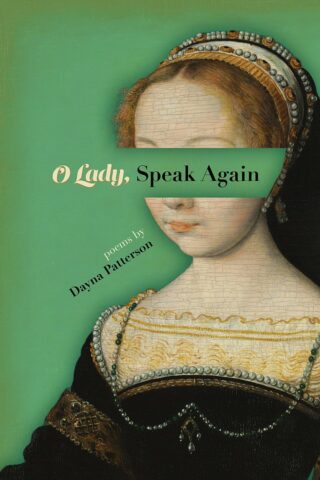O Lady, Speak Again by Danya Patterson
Let’s face it, I’m not at all qualified to review this powerful book of poems on the themes of feminism, Mormon culture and the women of Shakespeare’s plays.
I’m in over my head, yet I’ve been drawn in by both wordplay and intimacy as Bellingham poet Dayna Patterson navigates between the thoughts of 16th-century Shakespearean women and her own history and experiences as a 21st-century woman.
Earlier this year, I attended a poetry reading where Patterson featured and read from “O Lady, Speak Again,” and I was struck by both the concept of the collection and the intimacy of her presentation.
Patterson has put together a unique collection of poems in which several of the female characters who populate the plays of William Shakespeare are given a platform to speak out about their lives, their desires, their dreams and passions through a feminist lens, blended with an abundance of Mormon cultural references derived from the poet’s own background.
The result is an illuminating backstage view of the challenges, obstacles and motivations that shape Shakespeare’s female characters. Patterson has done the work to fully develop these women and allow their voices to rise above the male-dominated plays.
In the poem, “Hermione, Shapeshifter,” Hermione, whose child, Perdita, was taken from her, details her supernatural visitations, “Ghost or bear, Storm or stone. Child I’m whatever / you need.”
I’ll leave it to you to dive into the play “The Winter’s Tale” and find those references to ghost, bear, storm and stone. Patterson, in those lines, imbues these critical scenes with Hermione’s maternal intervention. Shakespeare did not claim the bear and ghost to be manifestations of Hermione, but Patterson’s explanation makes sense and makes for a more interesting story. The bard has been one-upped by the poet.
In another poem, Hermoine’s daughter, Perdita, now 16 years old, voices the confused pain of her abandonment with a stinging rebuke, “To out-mother my mother is easy … All I have to do is / Don’t disappear.”
Such a wicked burn, undeserved if we know the whole story, but Perdita only knew she had no mother. Again, this is not Shakespeare, it’s from Patterson’s imagination, but it rings true to anyone who has had interactions with a teenager.
This is a collection that will stimulate both brain and heart. Sit with it on a quiet Sunday morning with nothing to interrupt your deep dive. Take one poem at a time. Soak in the poem, then turn to Wikipedia to discover the backstory. Then read the poem again.
This is not a “one and done” type of poetry book. Each poem is a doorway into a deeper investigation of the literature and culture behind it. Each character is drawn with a depth that goes beyond their original depiction. Patterson invests them with characteristics and mindsets that feel authentic whether they are women of the 16th century or the 21st.
This collection has sparked my interest in the 400-year-old plays that inspired it, and I know as I delve into the works of Shakespeare, whether on the page, stage or screen, this book will be close at hand to bring out the feminist voice of these characters.
Reviewed by Neil McKay, online experience coordinator, Whatcom County Library System
Originally published in Cascadia Daily News, Oct. 9, 2023

